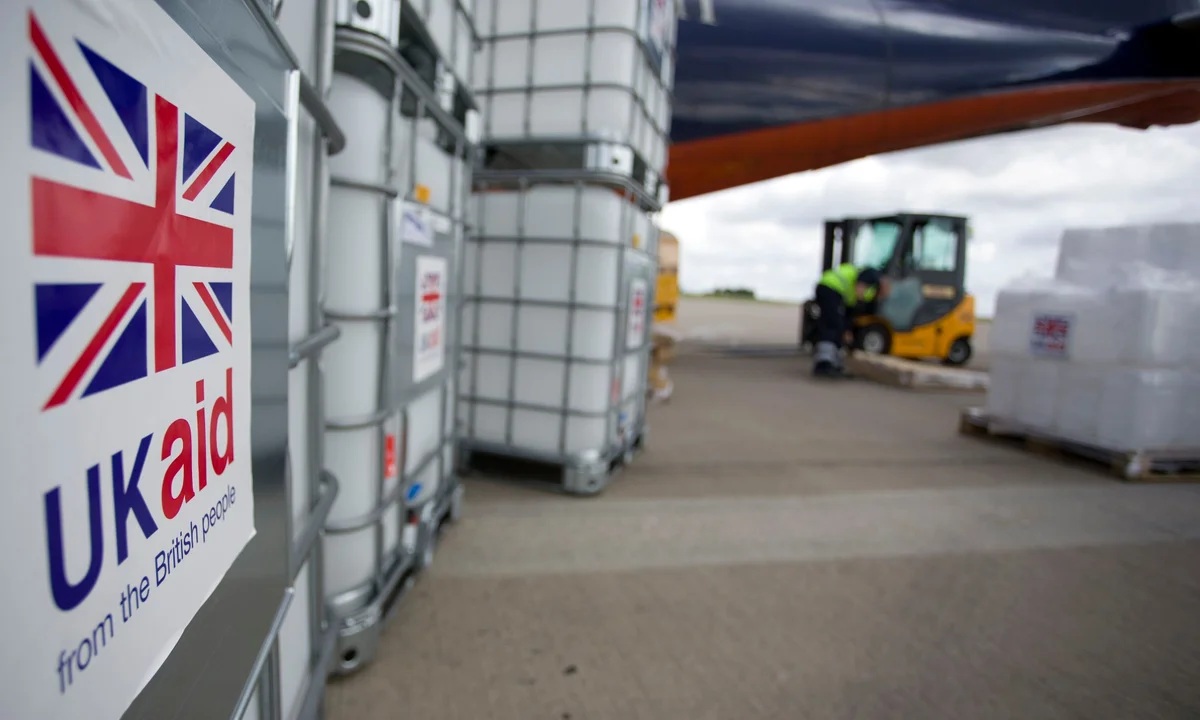The UK government has outlined its latest plans to reduce foreign aid spending, with the steepest cuts affecting children’s education and women’s health initiatives in Africa.
This decision follows an earlier announcement made in February to scale back overall foreign aid by 40%, reducing it from 0.5% to 0.3% of the nation’s gross national income.
The move is largely intended to allow for increased defense spending, which is being raised to 2.5% of national income amid mounting pressure from the United States.
According to a recent report and impact assessment by the Foreign Office, the most significant reductions will be seen across African countries.
This, according to it, is where support for women’s healthcare, education, and water sanitation projects is being scaled back.
The report warns that these cuts are likely to lead to increased health risks, including the potential rise in disease and death due to poorer access to basic services.
Numerous aid organizations have expressed grave concerns over the shift in priorities.
They argue that the cuts will disproportionately harm the world’s most disadvantaged populations.
Despite this, the government insists that it remains committed to multilateral aid, pledging continued support for international institutions like the World Bank and the Gavi vaccine alliance.
The UK also vows to sustain humanitarian efforts in regions facing acute crises, such as Gaza, Ukraine, and Sudan.
Baroness Chapman, Minister for Development, defended the changes, stating that “every pound must work harder” to support both UK taxpayers and global aid beneficiaries.
She emphasized a renewed focus on efficiency and strategic priority-setting in allocating aid funds.
The Foreign Office added that these changes stem from a comprehensive review of the aid budget, conducted line-by-line.
This review aimed to emphasize value for money, protect humanitarian funding, and honor active contracts, while responsibly phasing out certain programs where necessary.
As a result, some bilateral funding, direct aid to specific countries, will be reduced, and underperforming multilateral agencies may also face future budget cuts.
Specific country-level changes, however, have yet to be disclosed.
The decision has drawn sharp criticism from across the political spectrum.
Sarah Champion, chair of the International Development Committee, warned that the strategy appears to sacrifice the needs of the most vulnerable.
Liberal Democrat MP Monica Harding described the cuts as the lowest level of aid spending in the 21st century and predicted even harsher reductions in the coming year.
Bond, a UK network of international development organizations, also expressed concern.
It highlighted that the reductions disproportionately affect critical areas such as gender equality, education, and emergency support in countries experiencing conflict and humanitarian crises.
Despite the government’s previous assurances, aid to regions like South Sudan, Ethiopia, Somalia, and the Occupied Palestinian Territories is also reportedly being reduced.
Gideon Rabinowitz, Bond’s policy director, warned that the brunt of these cuts would fall on marginalized communities, particularly women and girls.
He urged the UK to increase its support in areas where other global powers, such as the US, have already scaled back.
UNICEF, the United Nations agency focused on children, condemned the cuts as “deeply short-sighted,” stressing that they would have a devastating impact on women and children.
Philip Goodwin, UNICEF UK’s chief executive, called on the government to realign its strategy.
This he said they could do, by ensuring that at least 25% of aid funding is dedicated to initiatives centered on child welfare, education, nutrition, and protection.
Street Child, a British-founded charity, echoed these concerns.
CEO Tom Dannatt explained that several of their educational programs in countries like Sierra Leone, South Sudan, and the Democratic Republic of the Congo would be discontinued.
He lamented that many children would be forced out of classrooms and into labor, missing critical opportunities for personal and societal advancement.
While most foreign aid programs are being reduced, the World Bank’s International Development Association (IDA), which supports the world’s lowest-income nations, has been spared.
The UK pledged £1.98 billion to the IDA over the next three years, benefiting an estimated 1.9 billion people.
Historically, the UK had committed to raising foreign aid to 0.7% of national income, a target first met in 2013 and later written into law in 2015.
However, in the wake of the COVID-19 pandemic, the Conservative government reduced the figure to 0.5% in 2021, citing economic strain.
The latest cuts mark a further departure from those earlier commitments.







